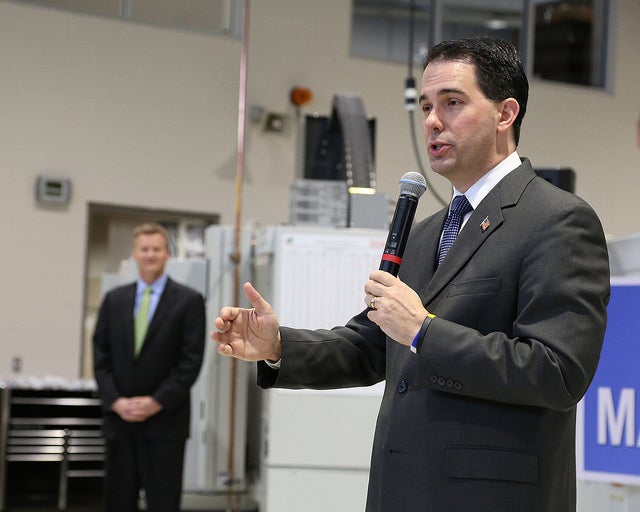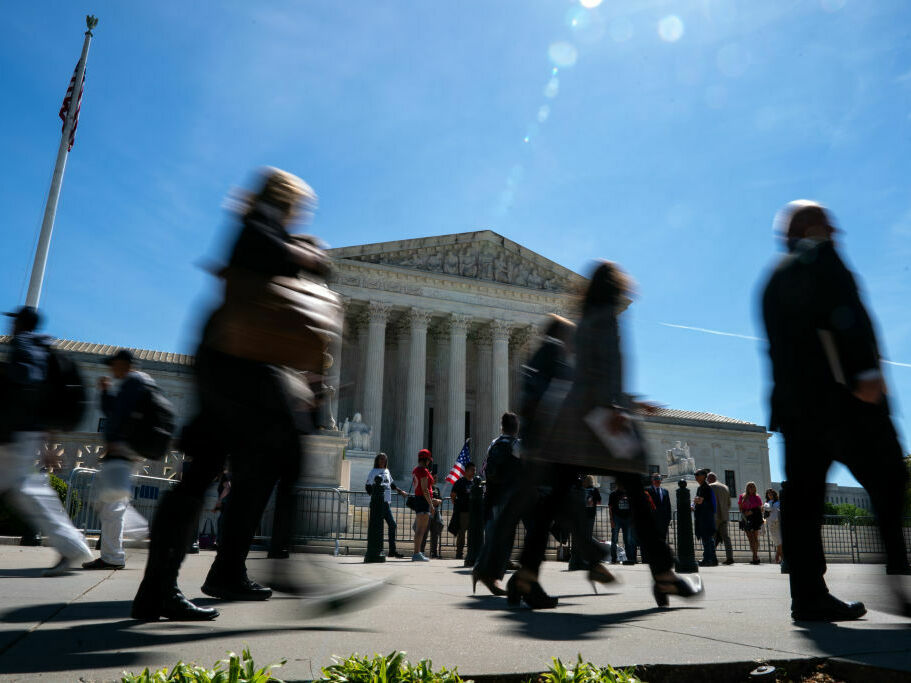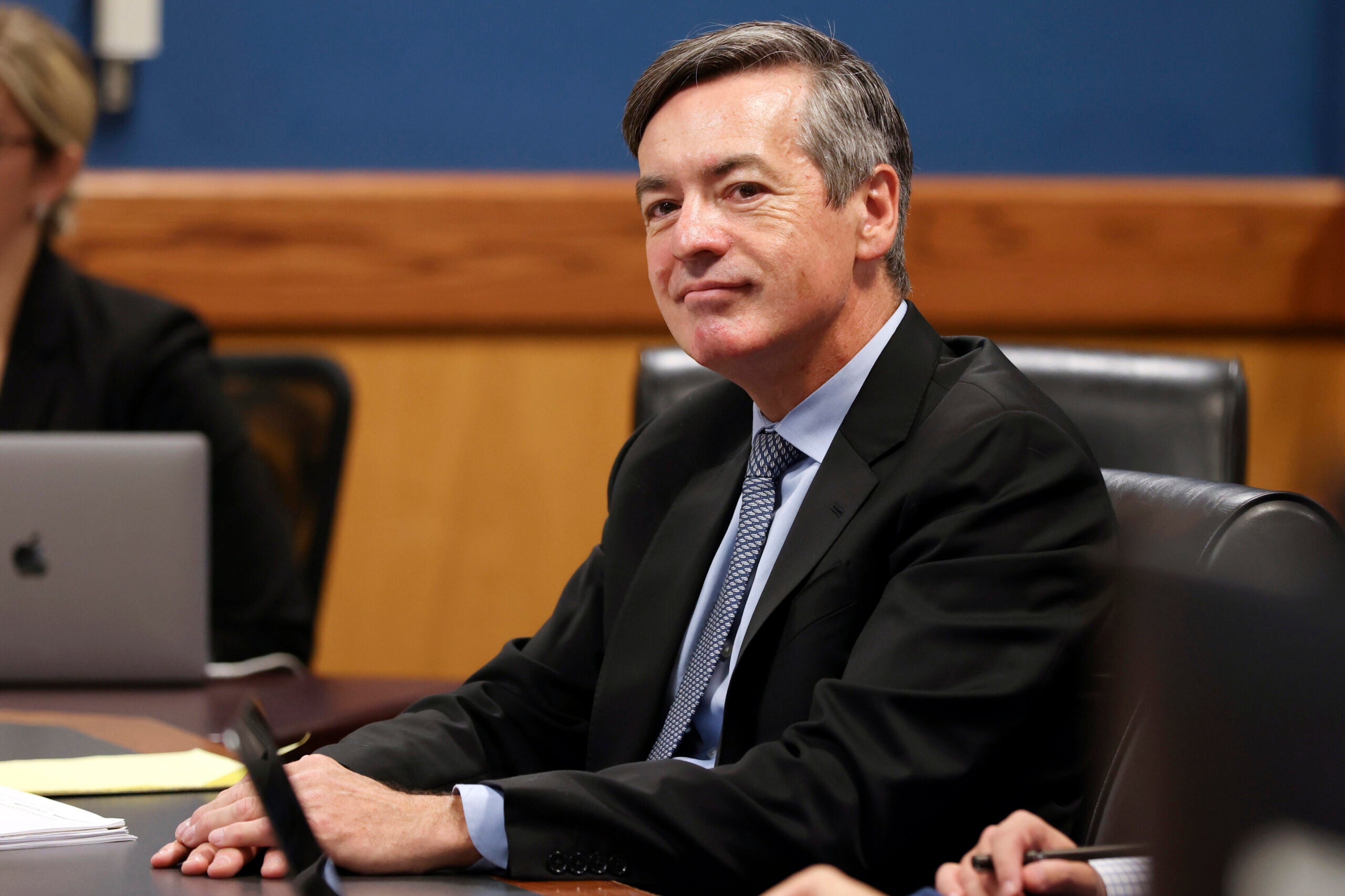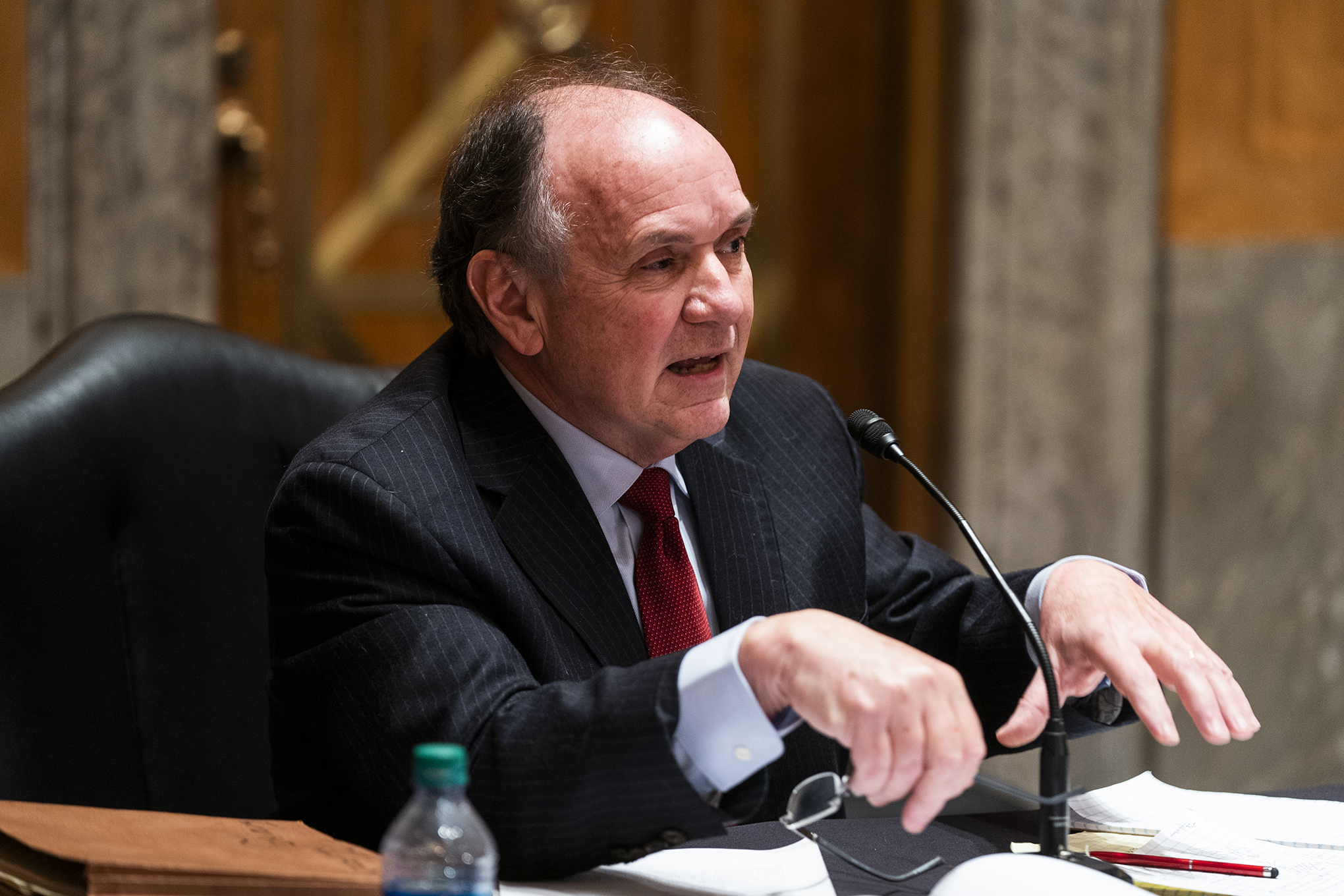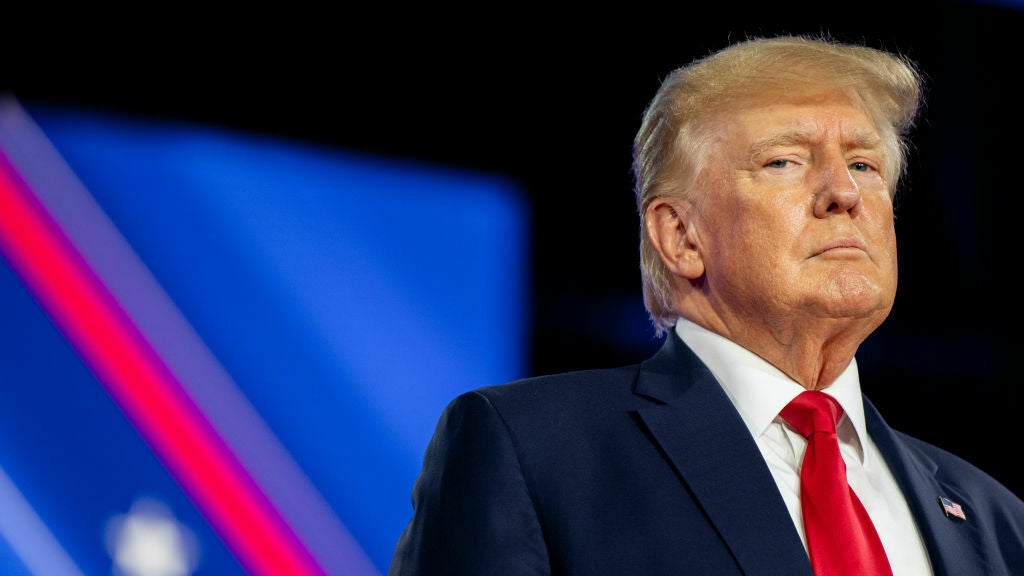Gov. Scott Walker’s campaign issued a rare statement on a John Doe criminal investigation on Thursday, but it did not refute reports that Walker’s lawyer was in settlement talks with prosecutors from the probe.
The Wall Street Journal editorial page first reported the settlement talks on Tuesday night. The editorial lashed out at Walker, saying “Sounds like Mr. Walker has to decide whose side he’s on.”
The Wisconsin Club for Growth, which has sued John Doe prosecutors on First Amendment grounds, sent a letter immediately demanding a stop to any talks, saying they would violate a federal court order that halted the probe.
Stay informed on the latest news
Sign up for WPR’s email newsletter.
In a brief and carefully worded statement today, Walker’s campaign said, “Neither Governor Walker nor his campaign committee are parties to the federal lawsuit,” saying that meant “they have no legal standing to reach a settlement or deal in their lawsuit.”
Milwaukeee Attorney Jeremy Levinson, a campaign finance expert who has worked for Democrats, says that statement is technically true, but negotiations would be happening in state court, not federal.
“I think it was a clever and artful dodge, basically, because he’s right,” said Levinson. “Since neither he nor his committee are parties to the federal case, they cannot settle that case. But it’s a totally different matter as to whether the Walker campaign can reach a settlement or plea bargain with investigators or prosecutors of the state of Wisconsin”
Meanwhile, lawyers for John Doe prosecutors have asked U.S. District Judge Rudolph Randa for clarification on his court order that halted the investigation. Lawyers for the Club for Growth told Randa in a court filing today that prosecutors should first explain exactly what they want to do that might violate that order.
Wisconsin Public Radio, © Copyright 2024, Board of Regents of the University of Wisconsin System and Wisconsin Educational Communications Board.

